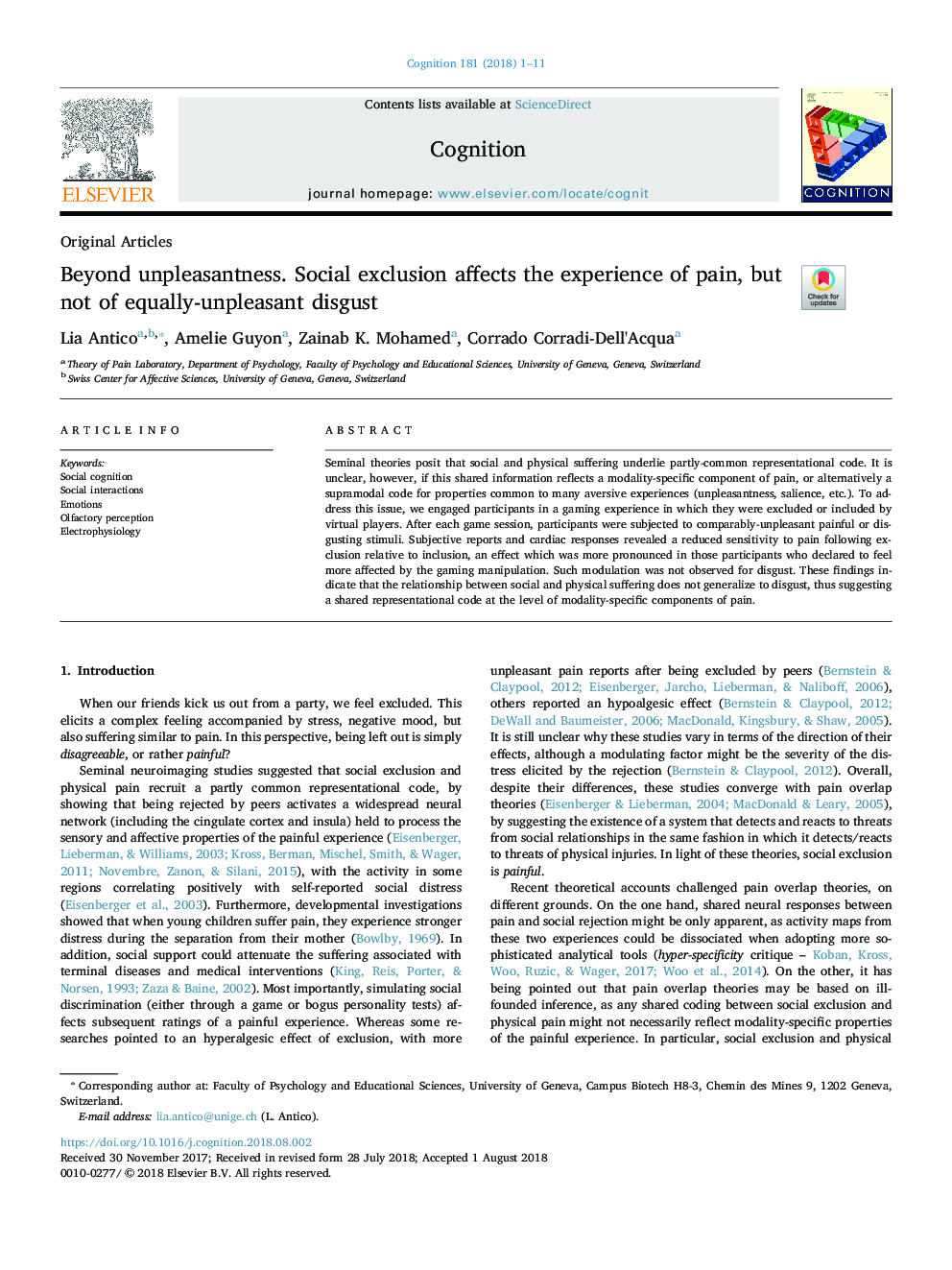| Article ID | Journal | Published Year | Pages | File Type |
|---|---|---|---|---|
| 7284998 | Cognition | 2018 | 11 Pages |
Abstract
Seminal theories posit that social and physical suffering underlie partly-common representational code. It is unclear, however, if this shared information reflects a modality-specific component of pain, or alternatively a supramodal code for properties common to many aversive experiences (unpleasantness, salience, etc.). To address this issue, we engaged participants in a gaming experience in which they were excluded or included by virtual players. After each game session, participants were subjected to comparably-unpleasant painful or disgusting stimuli. Subjective reports and cardiac responses revealed a reduced sensitivity to pain following exclusion relative to inclusion, an effect which was more pronounced in those participants who declared to feel more affected by the gaming manipulation. Such modulation was not observed for disgust. These findings indicate that the relationship between social and physical suffering does not generalize to disgust, thus suggesting a shared representational code at the level of modality-specific components of pain.
Related Topics
Life Sciences
Neuroscience
Cognitive Neuroscience
Authors
Lia Antico, Amelie Guyon, Zainab K. Mohamed, Corrado Corradi-Dell'Acqua,
